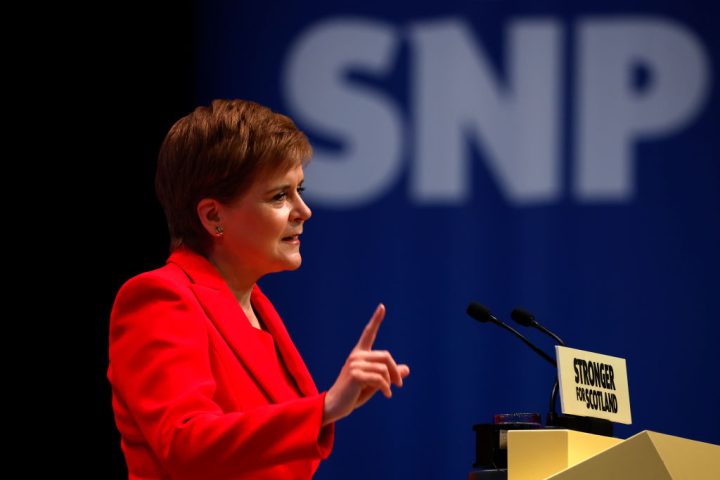The arrest of Nicola Sturgeon by police investigating allegations of fraud within the SNP was hardly unexpected. After all, her husband – the party’s former chief executive, Peter Murrell – and the SNP’s past treasurer, Colin Beattie MSP, have already spent time helping officers with their enquiries. It was only a matter of time until the cops got to Sturgeon.
Nonetheless, the shock of news – broken in a tweet from Police Scotland at 2.29pm on Sunday afternoon – that she was in custody as a suspect was undiminished.
Until her surprise resignation as SNP leader – and, thus, first minister of Scotland – in February, Sturgeon was widely considered one of the pre-eminent political figures of her generation. Her reputation as an unusually gifted practitioner of the political arts stretched far beyond Scotland. She was that rare thing in UK politics – a figure with an international profile.
But just weeks after she resigned, a police raid on her home – and the SNP’s offices – rather tarnished that reputation.

Britain’s best politics newsletters
You get two free articles each week when you sign up to The Spectator’s emails.
Already a subscriber? Log in








Comments
Join the debate for just £1 a month
Be part of the conversation with other Spectator readers by getting your first three months for £3.
UNLOCK ACCESS Just £1 a monthAlready a subscriber? Log in